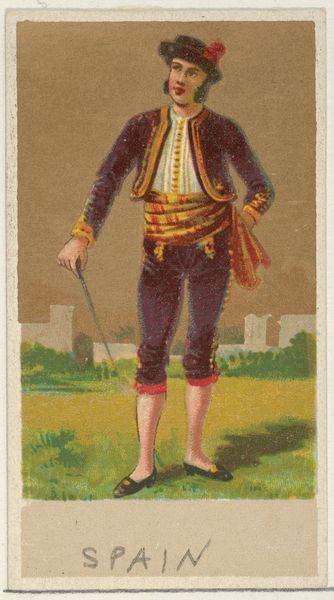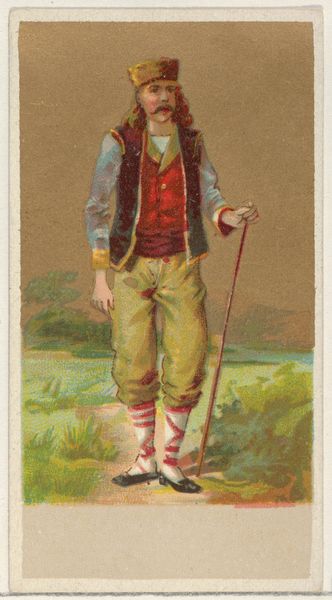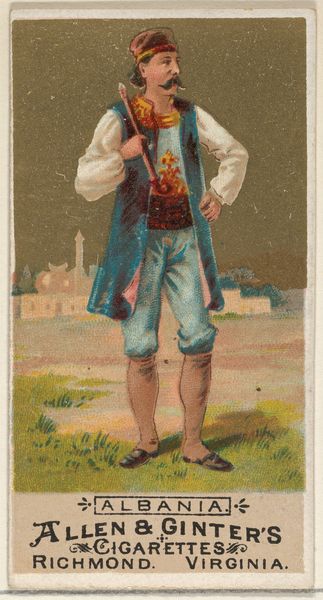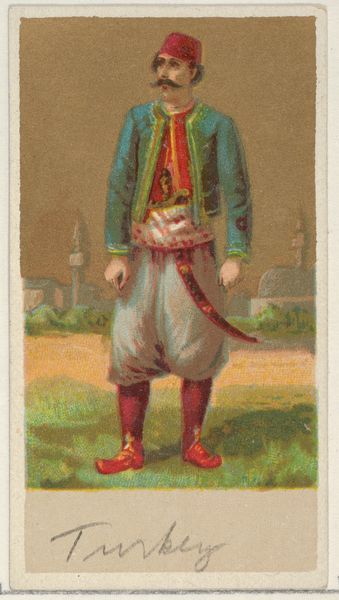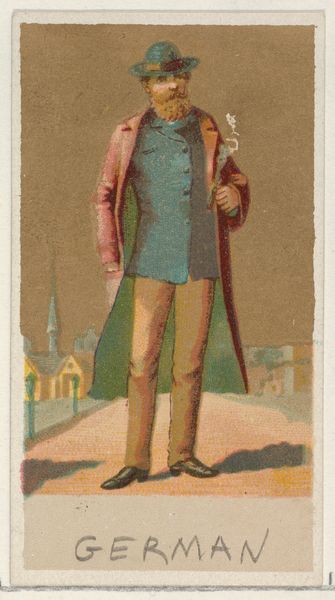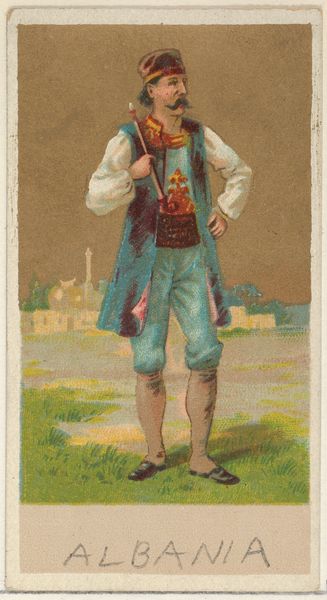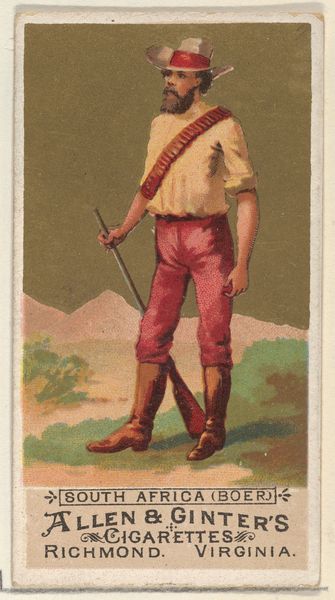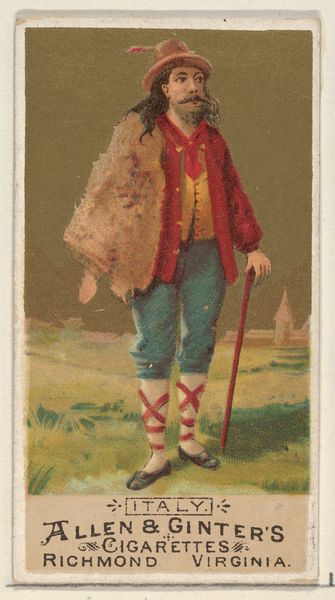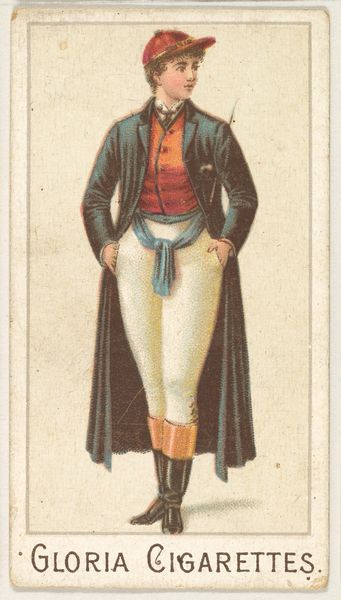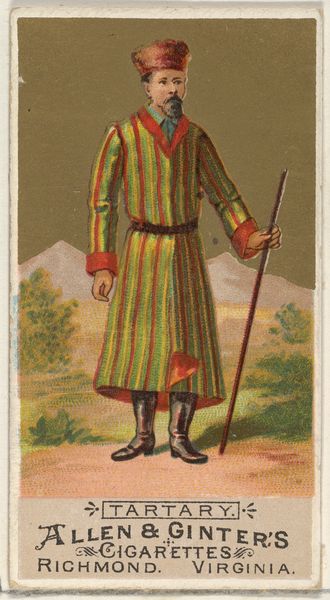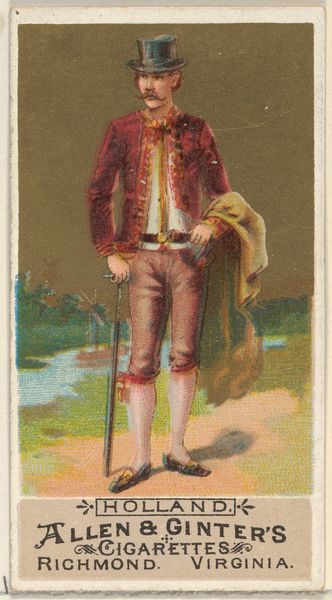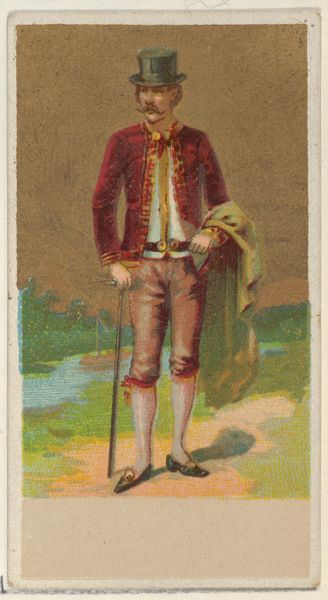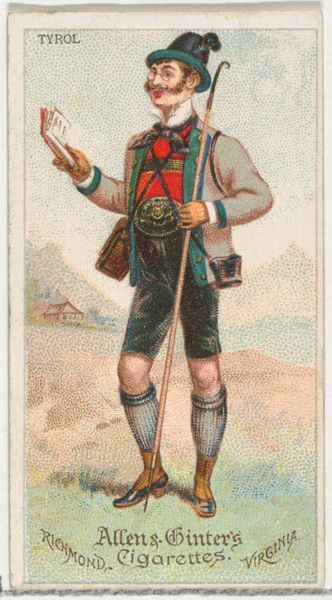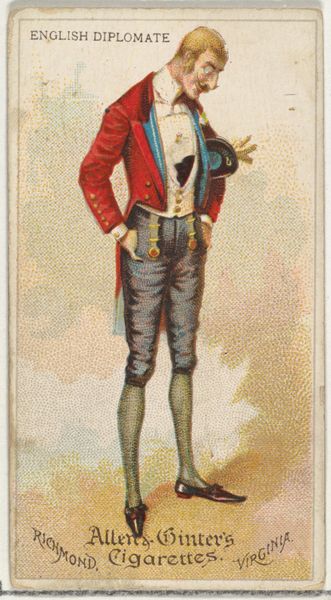
Spain, from the Natives in Costume series (N16) for Allen & Ginter Cigarettes Brands 1886
0:00
0:00
drawing, coloured-pencil, print
#
portrait
#
drawing
#
coloured-pencil
# print
#
caricature
#
figuration
#
coloured pencil
#
orientalism
#
genre-painting
Dimensions: Sheet: 2 3/4 x 1 1/2 in. (7 x 3.8 cm)
Copyright: Public Domain
Editor: So, this is "Spain, from the Natives in Costume series (N16) for Allen & Ginter Cigarettes Brands," dating to 1886. It's a coloured-pencil print, almost like a trading card. The figure is stylized, maybe even a bit of a caricature. What strikes me is the rather performative element of this work and that it was included as a collectible item. What do you make of it? Curator: It’s fascinating how images, especially those mass-produced like this cigarette card, create and reinforce cultural narratives. Consider the "Natives in Costume" series title; immediately, we have a sense of "othering," an emphasis on costume, implying a superficial understanding of Spanish identity. How does this relate to a brand of cigarettes? Editor: That's a good question! So, in a sense, it exoticizes Spanish identity to sell tobacco. The focus on clothing seems a way to signify culture with something external. It looks so contrived. Curator: Precisely. The symbols—the matador-esque outfit, the almost comical seriousness of his expression – are distilled down into easily digestible tropes. But it's more than just selling cigarettes; it’s about projecting an image of Spain, one filtered through an American lens, which at the time, was quite influenced by a romantic and sometimes distorted view we call Orientalism. This is cultural memory being manufactured. What lasting effect did this have on the image of Spain? Editor: So, by simplifying and exoticizing Spanish culture, the card creates a lasting image, maybe a false image, for consumers. I wonder if it shapes perspectives even today. It highlights the dangers of visual shortcuts when encountering new cultures. Curator: And it brings up a broader point about visual symbols, no? Images, especially in consumer culture, have the power to shape not just our perceptions but also our collective memories. Allen & Ginter weren't just selling cigarettes, they were selling and reinforcing a specific vision of the world. Editor: Absolutely, this conversation changed how I see the piece. It's not just an image but a form of cultural manipulation, a visual shortcut loaded with historical implications.
Comments
No comments
Be the first to comment and join the conversation on the ultimate creative platform.
